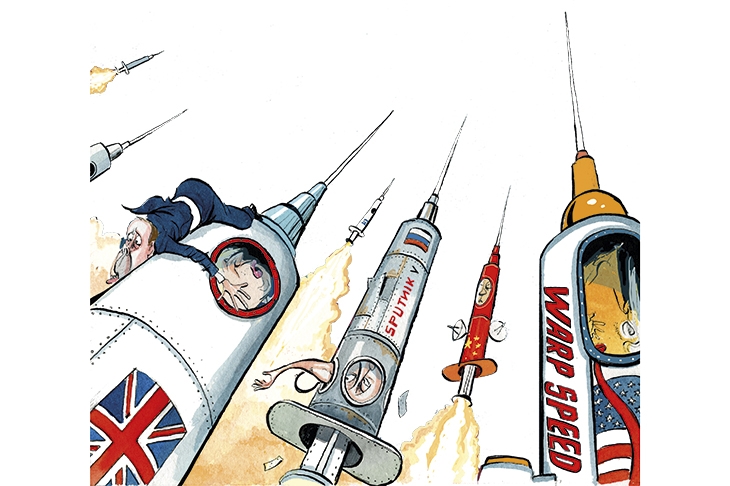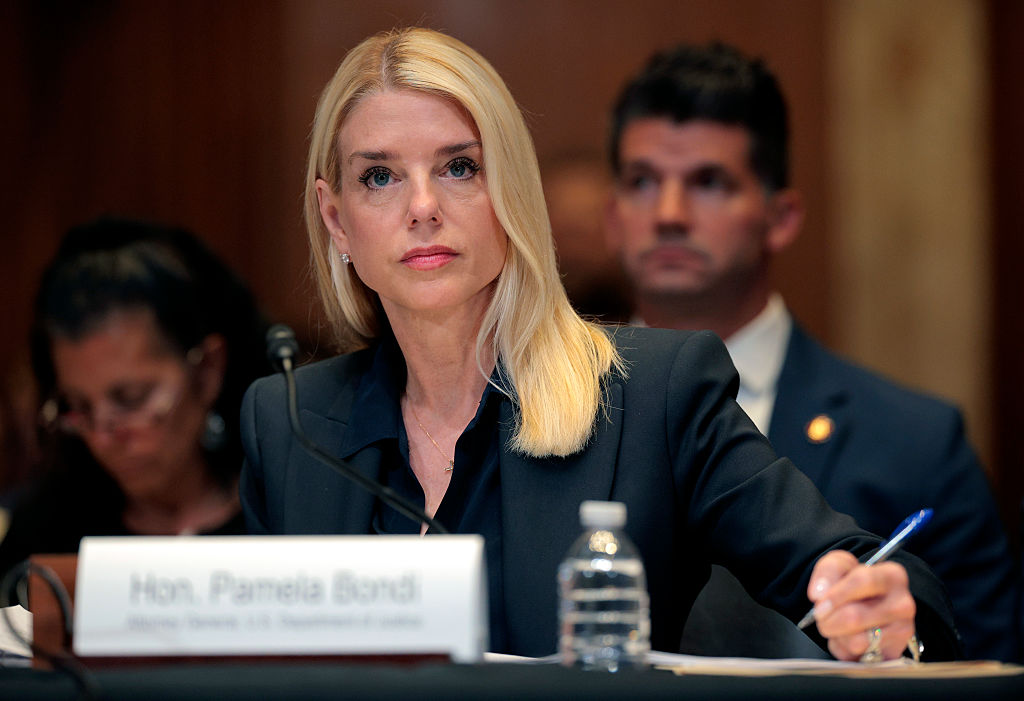As news emerges that both Pfizer and AstraZeneca are cutting supplies of their COVID-19 vaccines to the EU by up to 60 percent, EU officials are turning on the drug companies, threatening fines and lawsuits if they don’t speed up deliveries. The Italian prime minister Giuseppe Conte has blasted the delays as unacceptable and threatened to take the companies to court. While the European Council President Charles Michel is threatening to use ‘all the legal means at our disposal’ to make the drugs companies ‘respect the contracts’ signed with the EU. But hold on, because on closer inspection it turns out that much of the unfolding vaccine catastrophe in the EU is of its own making.
The daily rankings of vaccination campaigns are making increasingly uncomfortable reading for most European countries. While Israel has managed to issue a remarkable 40 doses per 100 of its population, and Britain and the United States 9.3 and 6.2 respectively, the EU is stuck on a mere 1.9. Amid mounting and understandable criticism, it is promising to jab everyone by the summer. And yet, according to calculations by the website Politico, it will need a five-fold increase in its rate of vaccination to hit that target.
The blame game is already underway — and officials and politicians have clearly decided it is wicked Big Pharma that is at fault. Although there is not much evidence for that. To start with, the European Medicines Agency doesn’t seem to be in any great hurry to approve vaccines. It still hasn’t passed the Oxford jab, even though it is one of those that the EU has ordered in quantity. AstraZeneca is now likely to find itself in the slightly surreal position of being sued across Europe for not delivering enough of a vaccine that hasn’t even been authorized for sale. Even worse, it has been bogged down by petty rules. According to the Wall Street Journal, there could be further delays once approval is finally secured, for labels to be printed in the EU’s multiple languages. Even Franz Kafka might have decided that piece of bureaucracy was too far-fetched.
In truth, the EU’s vaccine procurement program has turned into a mess. As Gutram Wolff, the director of the Bruegel Institute, usually fiercely loyal to Brussels, tweeted: ‘The EU spends less per vaccine shot than other industrial countries. This stingy approach cost lives. It’s incomprehensible.’
Very true. Israel, for example, has reportedly spent far more per head than other countries. It is estimated to have paid about $30 per dose of the Pfizer jab, around 50 percent more than the EU is paying. But so what? Is a small amount of more money per shot really that big of a deal (it would cost roughly over an extra €4 billion for the EU to pay the Israeli rate)? From the start, the EU decided the main issue was getting value for money, and clamping down on ‘unfair competition’ between countries. But the real challenge was cracking the science, and then ramping up production at lightning speed. The money was largely irrelevant, and as with so many challenges, the more you spent, the more likely you were to get results — even if there was some waste along the way. The EU is trying to shift the blame to Pfizer and AstraZeneca. But in reality, this is a crisis of its own making. And as death rates start to fall dramatically in the vaccinated countries, the price will surely be a high one.
This article was originally published on The Spectator’s UK website.

























